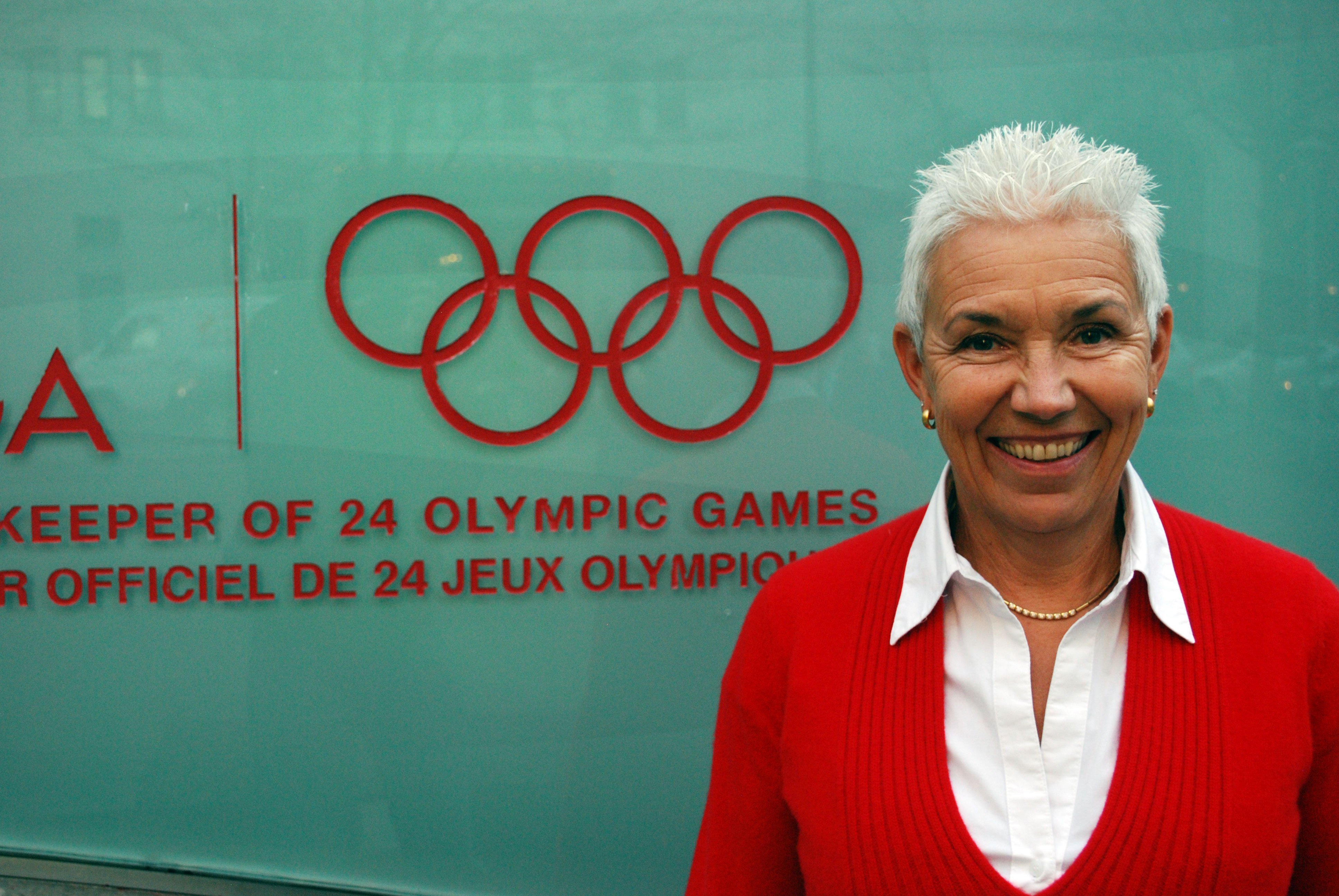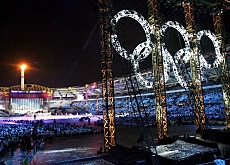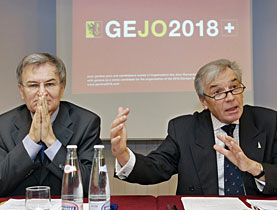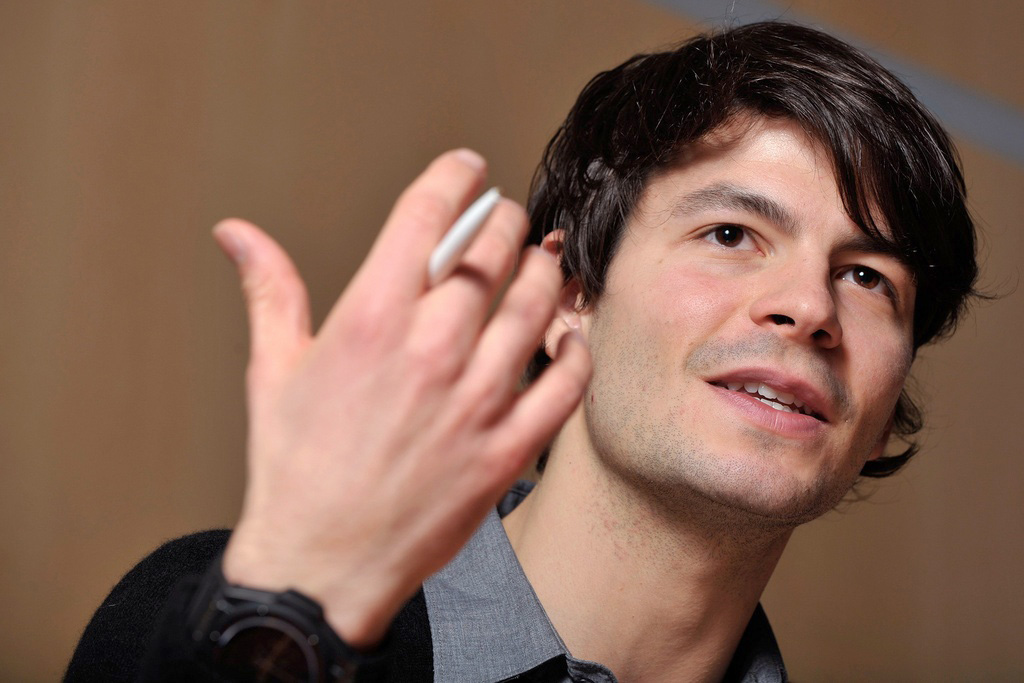Ex-Olympian recalls Munich as Vancouver nears

If former Swiss Olympian Margrit Meier had but one wish for the teams coming to Vancouver, it would be that they leave with memories nothing like hers from Munich 1972.
Meier was competing in running events at the Games that were marred by an act of terrorism.
For the past two years she has been working behind the scenes in Canada as a Swiss Olympic Team attaché. Her job: to use her knowledge of the city and the Olympics themselves to ensure the Swiss have a golden experience.
“So far it hasn’t become too busy yet but I know that will change,” says Meier over a breakfast of yogurt and fruit in a downtown Vancouver hotel.
“I’m basically taking care of all the small things that come up – finding rooms for VIPs, getting the athletes humidifiers, taking them to Ikea. If you need a SIM card, I know where to go.”
Meier was born in Zurich but came to Canada in 1971 to learn English and to train as a runner. She planned to stay for one year but nearly four decades later, Vancouver is still her home.
“It’s so friendly here and beautiful with the mountains and the sea,” she says in nearly perfect English. “The skiing is fantastic, too. It holds up to anything in Europe.”
Dedication
Meier’s own Olympic dreams began when she was 18 years old. She met a handsome and gifted runner named Max, a Zurich banker, who would one day became her husband.
“I wasn’t as talented among the men as she was among the women,” Max Meier says. “Within a year and a half of starting to train she was the 1966 Swiss champion in the 800 metres. I concentrated on becoming her coach.”
The couple originally wanted to combine adventures and move to New York to learn English and train. They ended up in Canada instead, first in Montreal, then in Vancouver, where the weather is mild enough for regular winter runs.
“You couldn’t be a full-time athlete,” Meier says. “My sponsorship included two pairs of Adidas shoes and maybe a track suit. I’d run in the mornings before work and then again in the evening after work.”
Her times continued to improve – 11 Swiss records in all. The best prize came when she qualified for the 1972 Summer Games in Munich.
“It was the first time that the women had a 1500m event,” Max Meier says. “That was considered a long distance for women then. Now of course they run marathons.”
His wife adds: “When I qualified, it was incredible.”
Mood swings
Meier, whose maiden name is Hess, will never forget being a part of the opening ceremonies. Urs von Wartburg, a javelin thrower from canton Solothurn, carried the Swiss flag that year.
Meier’s race unfolded during the second week of the Games. She ran to her second-best time ever, yet it was not enough to advance her past the first round. Doping was rampant, she said.
The Swiss team walked away with three medals, all of them silver. Despite the lackluster showing overall, Meier still had reason to celebrate and went out that night with Max. When she returned to the Olympic Village, there were soldiers with machine guns blocking off the area.
“We didn’t know what was going on at first,” she said. “Then we found out the Israelis had been taken hostage. My roommate and I wanted to put a dresser up against the door.”
The story has been told in numerous books and films. Black September, a militant Palestinian group, stormed the Israeli team apartment, killed some wrestlers immediately and took other athletes and coaches hostage. Twenty-one hours later, all 11 Israelis, a German police officer and five gunmen were dead.
“The whole experience was unbelievable until the night of the attack,” Margrit said. “Munich had been so friendly. It was easy to get around and after that the mood just changed.”
Red and white
Security at the Olympics changed dramatically after that. Before the tragedy, Max, who was not part of the delegation, could walk into the Olympic Village without anyone caring.
Here in Vancouver, weeks before the Games, many of the venues are completely off limits, even to Meier – at least for now.
Time has treated the family well. The Meiers live in downtown Vancouver and work for themselves managing their investments. Margrit, now in her sixties, wears a shock of spiky white hair and still jogs and skis on legs that seem as strong as ever.
As for who they’ll root for, the couple are divided. Max was for years the director of the Canadian alpine team and recently sponsored a Canadian downhiller for the 2010 race. Yet both still bond with the Swiss, particularly Didier Cuche, who has stayed with the couple at their Whistler chalet.
“We are here to support both sides,” Max says. “Maybe she’s more for the Swiss and me for the Canadians.”
“At least they’re both red and white,” Margrit says.
Tim Neville in Vancouver, swissinfo.ch
Vancouver is Canada’s third-largest city with a population of about 612,000 and some two million including the greater area. With tens of thousands of hotel beds, solid infrastructure and numerous large sports venues already in place, Vancouver did not have to build much in terms of new facilities to host the 2010 Winter Olympics.
The city sits in a spectacular harbour surrounded by the cool water of the Georgia Strait and pinched by coastal mountain ranges like the Cascades. It is a short drive from the US border. In fact, US-bound air passengers can clear American customs and immigration at the airport in Vancouver.
Canada’s westernmost province is massive as it stretches from the state of Washington in the south to the state of Alaska to the north. It is home to just 4.1 million people but covers a whopping 944,735 square kilometers, an area nearly 23 times the size of Switzerland. About 12 per cent of its land is protected as parks or other designated natural areas.
The coast is gnarled with fjords and inlets, creating a coastline some 27,000km long. The rugged, mountainous interior coupled with ample snowfall makes for one of the world’s most popular heliskiing destinations. Dense forests cover much of the province.
Source: Wikipedia

In compliance with the JTI standards
More: SWI swissinfo.ch certified by the Journalism Trust Initiative













You can find an overview of ongoing debates with our journalists here . Please join us!
If you want to start a conversation about a topic raised in this article or want to report factual errors, email us at english@swissinfo.ch.